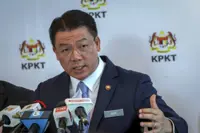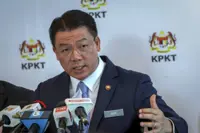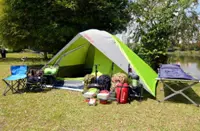Good start: Mohamed Taufik (left) says the regulation exercise will filter out high-risk campsites.
SELANGOR campsite operators have begun heeding the state government’s call to register their businesses for the purpose of licensing as the March 31 deadline draws near.
The state government has uploaded an online form while local councils are also circulating the form via their social media pages. It can also be found at ls.selangor.my/2sq8x3





